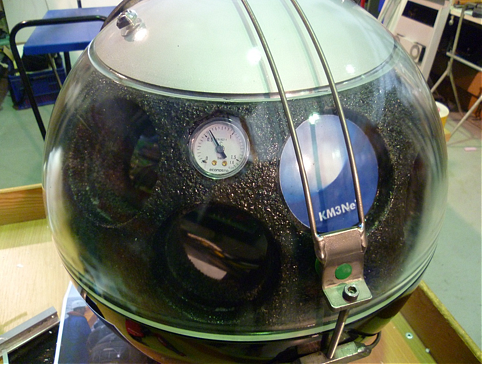Romanian scientists lead dark matter experiment via telescope in the Mediterranean Sea



Romania's Institute of Space Science is helping to pioneer the study of dark matter in the universe, leading an experiment as part of an international project to build a new underwater telescope in the Mediterranean Sea.
The experiment was part of the initial preparing phase for the project, called KM3NeT.
The telescope will study the astrophysics of neutrinos and will be an important tool in searching for the dark matter in the Universe.
The Romanian team worked with researchers from France, Italy and The Netherlands on the experiment, which used the existing Mediterranean Sea telescope, Antares.
The Romanian team, led by Dr. Vlad Popa, coordinated the research which investigated the characteristics of background signals.
When completed, KM3NeT will be an astronomic observatory system able to study the Universe through the light of neutrinos.
These can be generated by far away sources, such as gamma ray explosions, supernovas or star collisions, or even from yet unknown sources.
KM3NeT will use the Earth itself as a filter, and the sea water as instrument in detecting neutrinos.
The observatory will be made of 12,000 glass spheres, each with 31 optical sensors, placed on 600 vertical structures in the Mediterranean Sea.
The first device used in the pre-test stage, called mini-DOM, was installed in spring 2013 at 2,500 meters underwater. The device is currently functional and its data is being analysed within the project.
KM3NeT represents a collaboration of over 200 members in more than 40 European scientific institutes.
Romania's Institute of Space Science has been a member since 2007. ISS has been involved in several high profile international projects, including the famous CERN-ALICE, as well as in the ESA spacial program and in the NASA program with the first Romanian experiment sent to the International Space Station.
editor@romania-insider.com